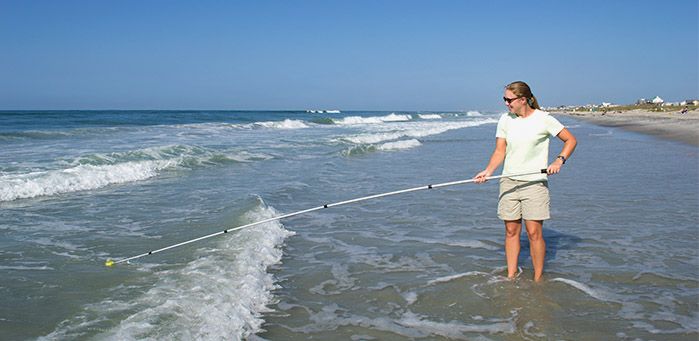An advisory against swimming was posted in Onslow County Wednesday, the first of the year. State officials found bacteria levels in the water that could cause gastrointestinal illness or skin infections.
What You Need To Know
- The North Carolina Department of Environmental Quality issued a swimming advisory for the Intracoastal access at Morris Landing
- The advisory warns swimmers of increased bacteria levels that can cause gastrointestinal illness or skin infections
- It's the first advisory of the swimming season, which runs from April through September
- DEQ routinely tests 221 sites along the coast
The advisory was posted at the public access into the Intracoastal Waterway at Morris Landing near Holly Ridge. The advisory is not a beach closing, nor does it affect the entire area. It simply warns swimmers within 200 feet of the posted sign of unsafe bacteria levels.
The advisory came after testing by the Department of Environmental Quality (DEQ) found bacteria levels in the water were higher than acceptable state and federal levels. Officials say they will continue to test the site, and remove the sign and inform the public when bacteria levels go down.
Where are there swimming advisories now?
The advisory in Onslow County is the first of this year’s swimming season, but another may be coming soon.
Map from Department of Environmental Quality (DEQ)
The DEQ also put out an alert for Jockey’s Ridge soundside access in Dare County on Wednesday. The alert indicates a pending swimming advisory for the area, which means that bacteria levels are elevated. A second test will determine whether the area will be placed under a swimming advisory.
Seven alerts were issued in the 2023 swimming season, which runs from April through September. Two of them turned into swimming advisories, one in Beaufort County and another in Dare County. Another swimming advisory was issued in Carteret County. All of them were on the sound side.
Recreational waters testing in N.C.
The DEQ tests 221 sites across the coast, most of them on a weekly basis from April through September, which is considered the swimming season. Some lower used beaches are only tested twice a month.
All beaches are tested twice a month in October, and monthly from November through March, when the water is colder. Alerts are usually not issued during the non-swimming season.
The DEQ has been testing the waters off North Carolina’s coast since 1997 through the N.C. Recreational Water Quality Program. The program monitors the state’s recreational waters and notifies the public when bacteria levels could cause bodily harm.
The program tests for enterococcus bacteria, which can be found in the intestines of warm-blooded animals. While not harmful itself, presence of the bacteria is correlated with other disease-causing organisms.
The program does testing in three laboratories, located in Morehead City, Wilmington and Manteo.



